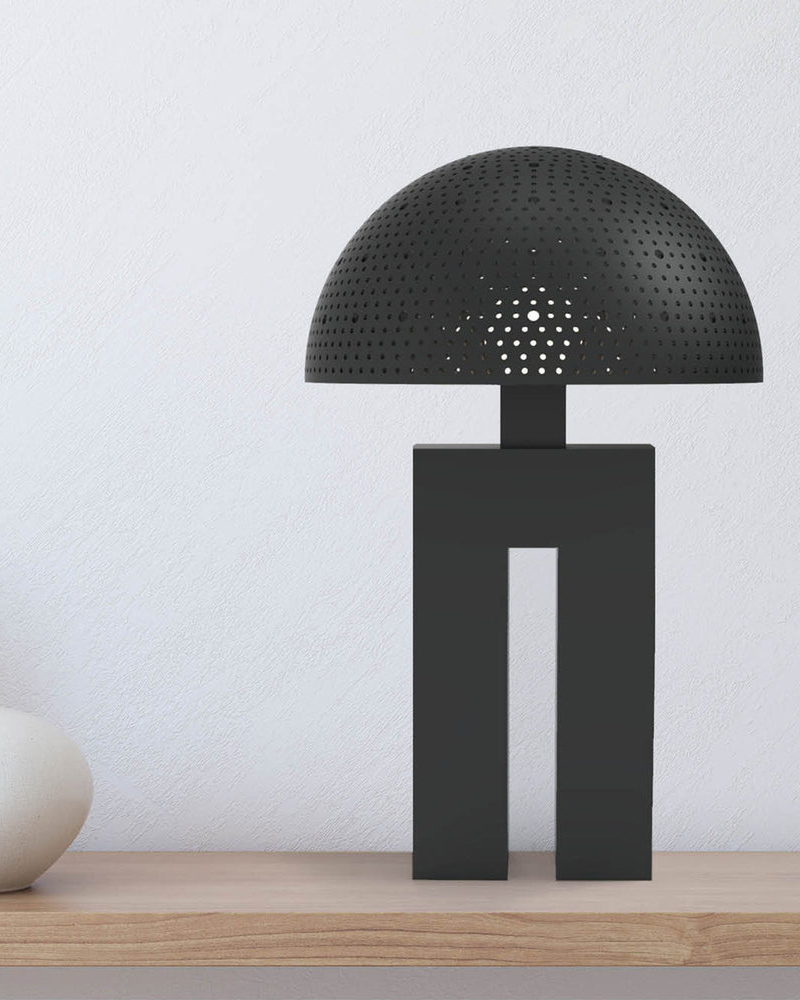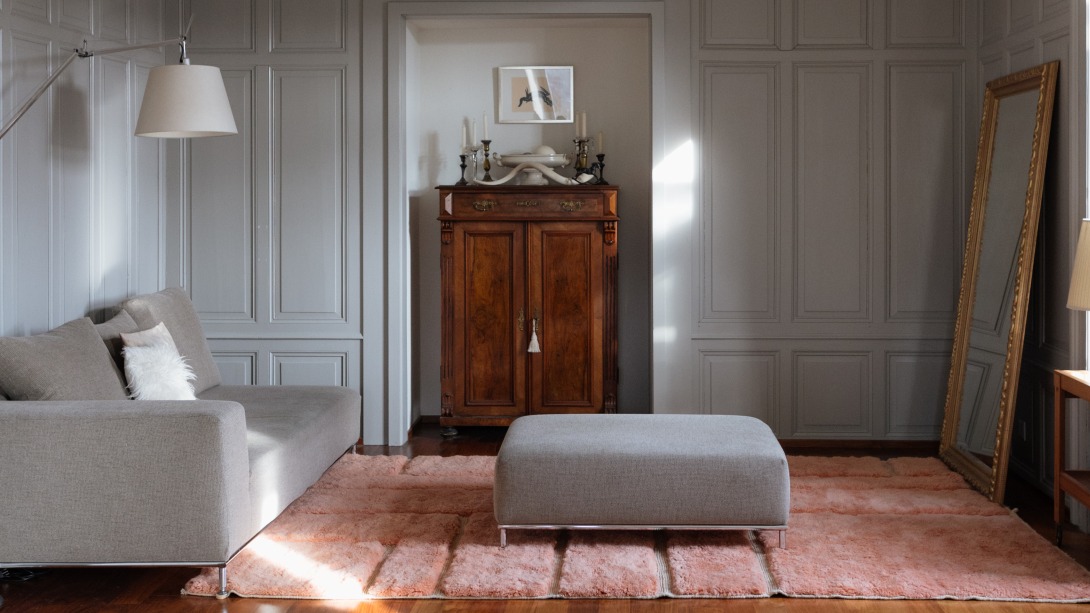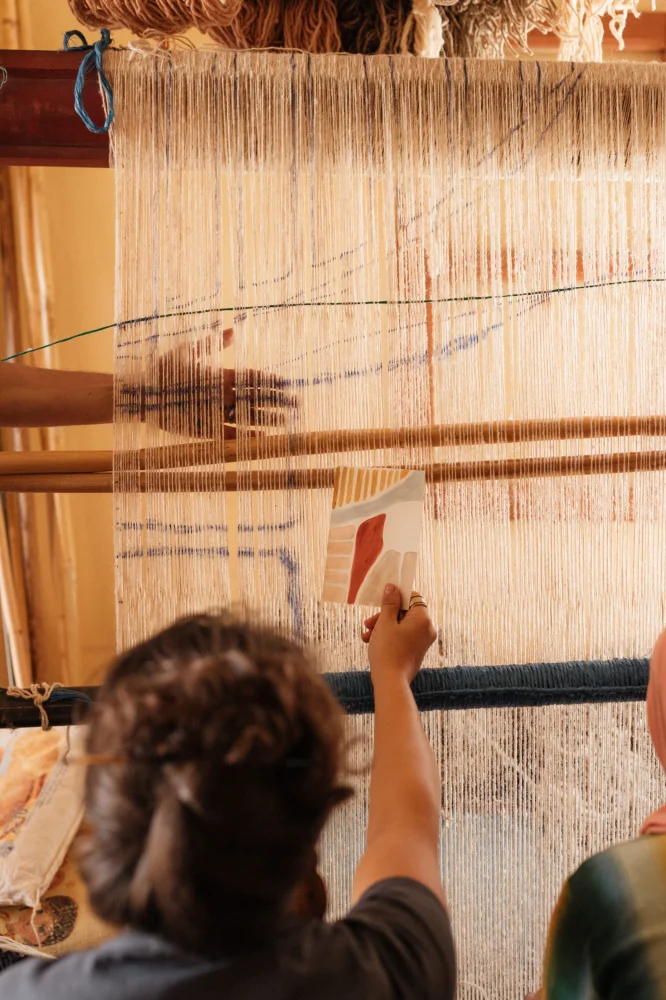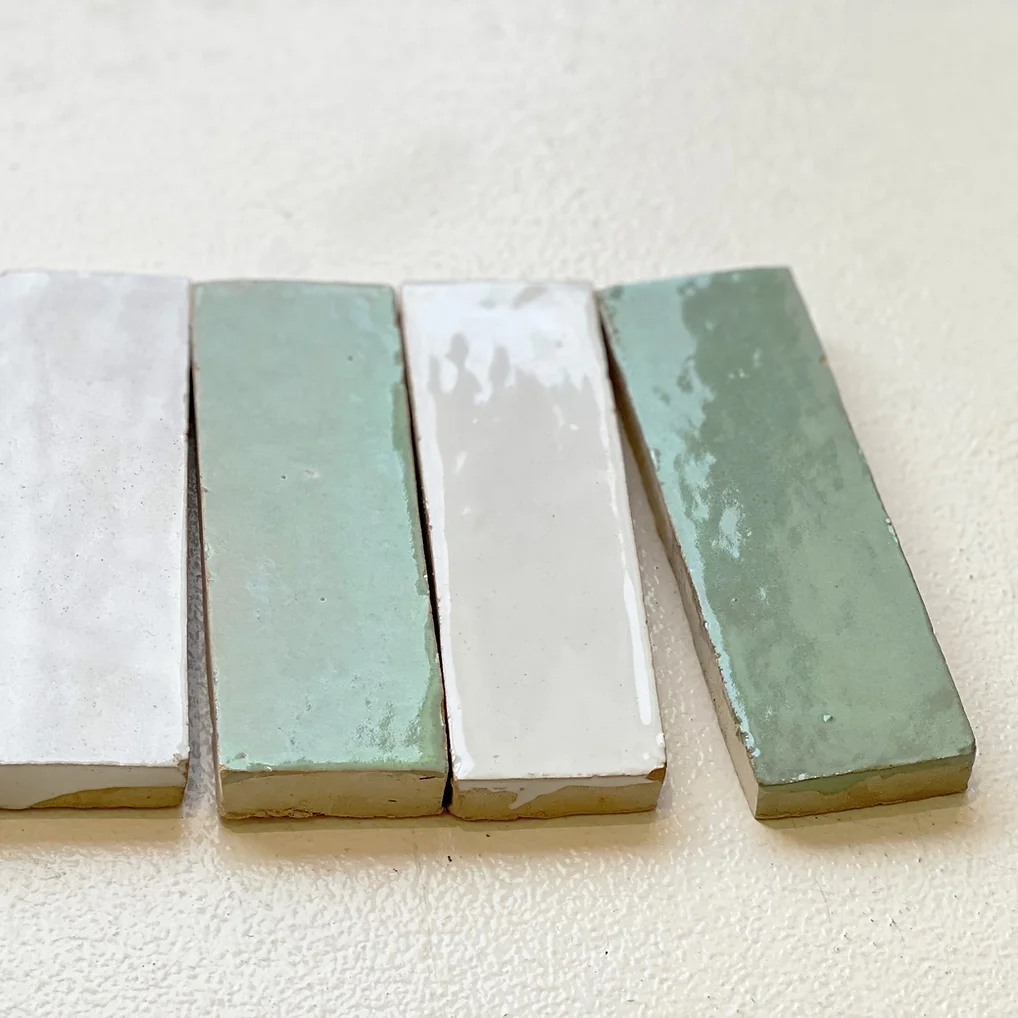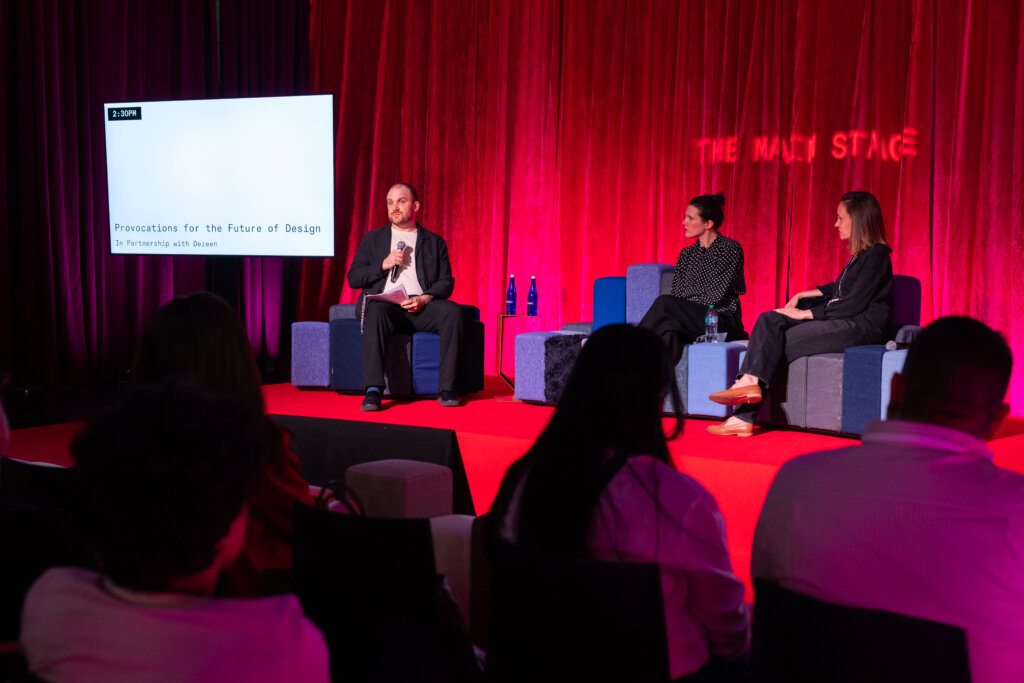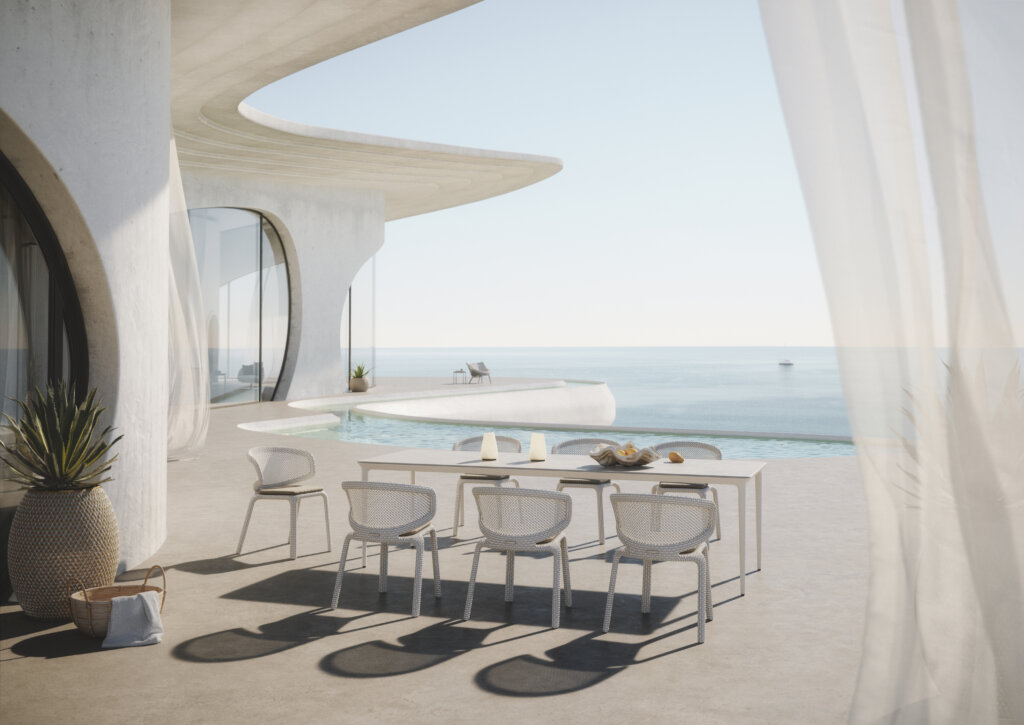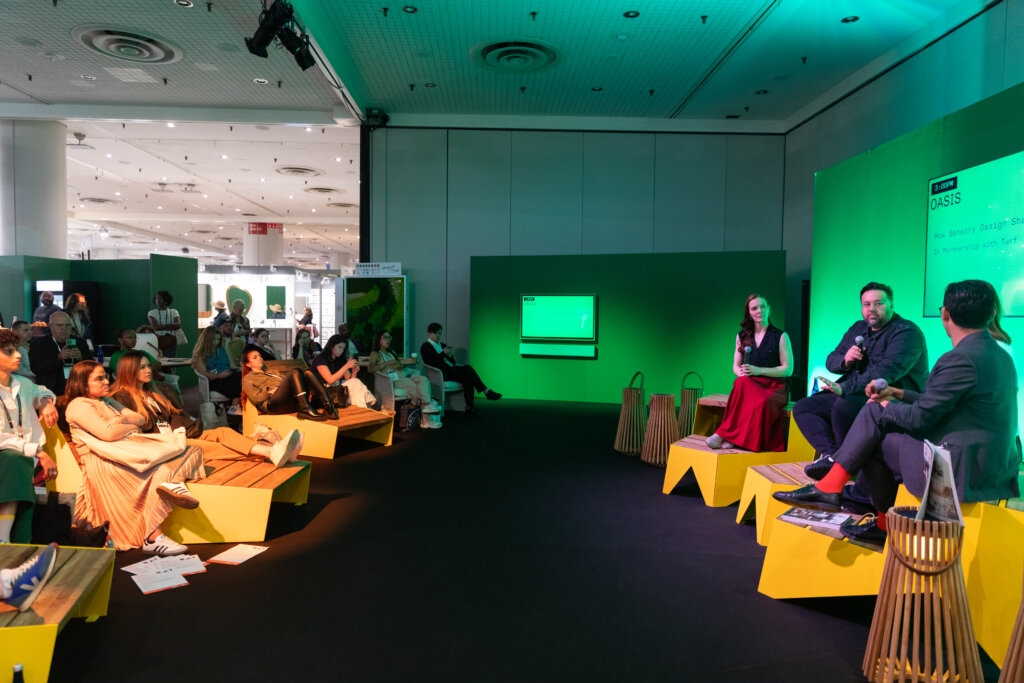
The future of Moroccan design is looking to the past, revitalizing ancient crafts though the creation of modern designs that embrace the traditional techniques and materials honed by the generations that came before them.
Meet the new faces of Moroccan craftsmanship bringing a refreshed vision of their cultural traditions to the forefront of design at ICFF 2023.
Callitris
Callitris is the legacy of a talented family of woodworkers and artisans whose story began nearly a hundred years ago in a small village in the Middle Atlas. Begun by patriarch Mouhat with the wood reproduction of a metal sculpture back in 1930, the family has since continued to hone and reinterpret their woodworking skills by reviving ancestral techniques and exploring new methods. Today, Callitris has grown to include dozens of talented local artisans who work closely to push the boundaries of their respective disciplines, designing and creating unique designs that combine local wood with other handmade materials from all over Morocco.
The origin of the brand’s name comes from the name given by botanists in the 18th century to a prized species of wood native to North Africa. Also known as Thuya wood, the burled cypress pine was highly prized historically, used in the Roman Empire to make luxury furniture for the Roman elite, and is today sought for fine woodworking and cabinetry. Callitris salvages this valuable wood from across the Moroccan Kingdom, looking for abandoned houses and traditional villages that are being demolished where Thuya has been used in the framework. The brand recovers these resilient pieces of wood and gives them a second life by creating stunning and sustainable pieces that combine the authenticity of this ancestral craft with an innovative, modern approach to woodworking.
Dounia Home
Dounia Home designs, develops, and handcrafts lighting and home decor products for the modern home that capture a slice of Morocco. Committed to aesthetic authenticity, craftsmanship, ethical production, and innovation, they focus on designing, developing, and making their products in the heart of Marrakech. Each piece is meticulously hand-crafted by artisans, using traditional metalworking techniques passed down through generations mixed with new ideas and innovations that push the boundaries of the craft.
“We launched Dounia Home in 2015 because of our deep passion and love for Moroccan handicraft,” founders share, “The inspiring historical and artistic landscape of this country provided us with endless possibilities to create lighting and home decor collections that connect our customers to the essence of this amazing country and preserve its craft.”
The brand’s commitment to revitalizing ancient metalworking techniques that are indigenous to Morocco mean each pendant, sconce, lamp, and chandelier represents the far past—and now, the present. In an effort to preserve traditional metalworking and grow the craft, they employ master artisans who infuse each piece with hand-etched designs, giving each fixture a personal touch.

“We are creating lighting that’s not only innovative but it’s also authentic, using time-honored techniques and designs inspired by 7th century Moroccan architecture”
—Dounia Home
My Moroccan Rug
My Moroccan Rug is a unique carpet brand from designer Khalida Toukkani, whose creations offer a bridge between the past and the present with designs that are intended to remain timeless. Entirely handmade, from fiber to finished product, each rug is painstakingly crafted by one or more women of the Moroccan Berber tribes with whom the brand collaborates. Their ancestral knowledge of weaving, combined with some of the finest wools available, ensure each rug will stand the test of time.
“I felt a deep passion to reconnect with native tradition in a way that enables me to share it with others,” the founder explains, “My Moroccan Rug allows me to stay connected to my roots, while also giving me the opportunity to collaborate with inspiring women. For me, the Moroccan rug is the most generous and most beautiful of the carpets. I am so proud of this craft and the work of the Berber women.”
“As a mother of three, I recognize the challenges that come with all the roles we play at home and in the community,” she continues, “That’s why it’s so important for me to support other women. In the Berber community, women are the pillars of the home: They are hardworking and resilient while also being gracious, kind, and truly selfless.”
Salima Filali
Originally from Fez, Salima Filali is passionate about the rich history of her birthplace and the traditional craft it is known for: zellige, the handmade clay tiles whose mosaic arrangements adorn mosques and palaces across Morocco. The making of genuine zellige is considered an art itself, crafted by the hands of maalems, or master craftsmen, who have passed down the secrets of this ancient art through generations of training and apprenticeships. Morocco’s Ministry of Culture has even trademarked the label Zellige de Fès to protect the cultural heritage of this national treasure.
Salima Filali founded her eponymous company with the hope of sharing the art of zellige with the wider world. “I want to honor our heritage, convey an emotion, and arouse curiosity,” the designer explains. Her creations link the tradition of craftsmanship with contemporary design, bringing a centuries-old art into the homes of today.
“I would like to share with you a part of this wonderful story: Show you the traditional technique of zellige artisans, show you how precisely they make the tiles, piece by piece, thanks to their unique know-how and the magic of their hands.”
—Salima Filali
Noun Design
Inspired by her native Morocco, designer Dorothée Navarro founded Noun Design to be a creative platform for Moroccan design, collaborating with artists, artisans, designers, and architects to offer a range of home decor and furnishings. The collection balances between traditional and modern, capturing the essence of a culture through the playful designs and saturated colors of Morocco. Shares Navarro, “The objective is to capture Morocco and make it shine beyond its borders.”



